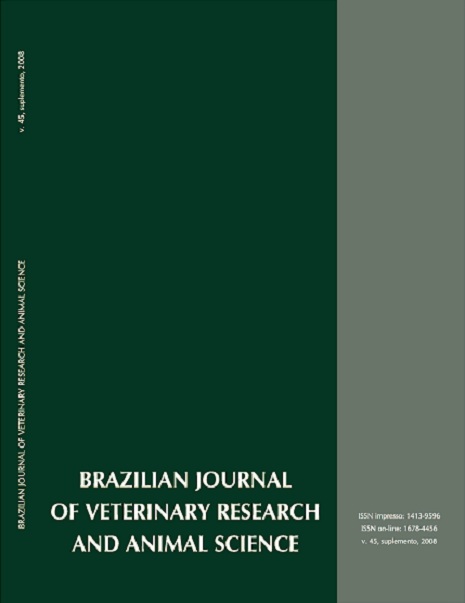Analysis of the association of the schooling with income and with cares of health and ectoparasitism in dogs in the city of Araguaína, Tocantins
DOI:
https://doi.org/10.11606/S1413-95962008000700011Keywords:
Schooling, Income, Parasitism, Care of health, Public health, DogsAbstract
An epidemiological survey carried out in 2005, in the city of Araguaína, State of the Tocantins, revealed to exist association between schooling and income of dogs' owners (p;0,05). In the group of owners with smaller schooling, the increase of the formal instruction, for nine or more years, can reduce the number of dogs without confinement, vaccination (except against the rabies) or deworming in 23,3% (IC95%=10,935,2), 30,5% (IC95%=18,7-41,1) and 22,3% (IC95%=10,7-33,2), respectively; in the assembly of all of the owners of dogs this reduction can be, in the same order, of 10.7% (IC95%=0,8-19,3), 14.3% (IC95%=3,9-24,3) and 10.7% (IC95%=1,0-19,5). The regional socio-economic promotion, with more actions of sanitary education and increase of the schooling, is essential condition to the improvement of the health of the dogs and, consequently, of the public health.Downloads
Downloads
Published
2008-12-01
Issue
Section
UNDEFINIED
License
The journal content is authorized under the Creative Commons BY-NC-SA license (summary of the license: https://
How to Cite
1.
Baptista F, Souto M de SM, Morais AN, Barros R de SC, Schneider AKM. Analysis of the association of the schooling with income and with cares of health and ectoparasitism in dogs in the city of Araguaína, Tocantins. Braz. J. Vet. Res. Anim. Sci. [Internet]. 2008 Dec. 1 [cited 2025 Apr. 18];45(supl.):82-7. Available from: https://revistas.usp.br/bjvras/article/view/26733





